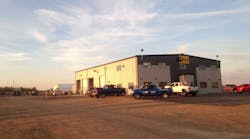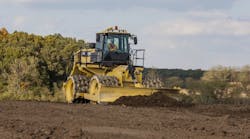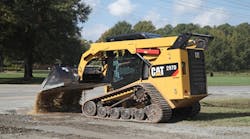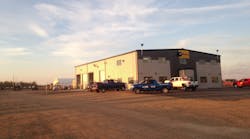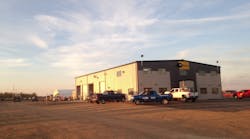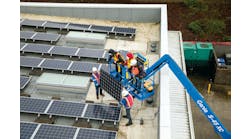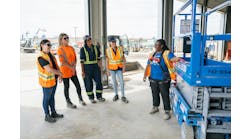In the wake of declining market activity in its third quarter, Vancouver, B.C., Canada-based Finning, the world’s largest Caterpillar dealer, announced a workforce reduction of about 1,100 people, bringing its total workforce drop to about 1,900 people in 2015.
To improve efficiencies, reduce costs and optimize service to customers, the company said, it will exit 11 facilities in Western Canada. Combined with a previous closure of 16 facilities, Finning’s footprint in Western Canada will be reduced by more than 20 percent by mid- to late-2016.
The recent workforce reduction includes about 550 people in South America in response to a significant decline in activity levels from the second quarter 2015. Since mid-2013, Finning will have reduced its South American workforce by 16 percent, approximately 1,200 people..
For the third quarter, total worldwide revenue for Finning was CDN $1,498 million, compared to $1,670 million in the second quarter of 2014, a 10.3-percent slide. Equipment rental revenue was $85 million, compared to $93 million in the year-ago quarter, an 8.6-percent drop. The big crash was in new equipment sales, which were $468 million, compared to $672 million in the year-ago frame, a 30.4-percent plunge.
For the first nine months of 2015, total revenue for Finning worldwide was $4,672 million compared to $5,115 million in the same period of 2014, an 8.7-percent drop. Worldwide equipment rental plummeted 16.5 percent, from $267 million in the first nine months of 2015 to $223 million this year. Worldwide new equipment sales slid more dramatically, from $2,145 million a year ago to $1,658 million this year, a 22.7-percent drop.
“While these are difficult decisions, we believe we are taking the right path to adjust our business to market realities and ensure financial strength, while simultaneously positioning Finning to deliver customer service more effectively and efficiently over the long term,” said Scott Thomson, president and CEO of Finning International. “We believe our resulting facility footprint provides the right support to enhance our customers’ experience, meet their evolving requirements and improve sales and service levels through our larger service centers and extended resident field teams.
Finning said the decline in Canadian revenues was driven by significantly lower demand from all sectors, particularly core construction equipment in Alberta. In South America, the company encountered a slowdown in construction activity, lower power systems revenues and a continued weakness in the Chilean mining sector. Mining customers have decreased production levels, parked some equipment, and postponed major repairs and components replacements.
Headquartered in Vancouver, B.C., Finning operates in Western Canada, Argentina, Bolivia, Chile, Uruguay, the United Kingdom and Ireland.
